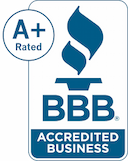Jersey City Addiction Info and Treatment Options
Substance abuse in the Garden State is steadily rising. The New Jersey Policy Perspective released a report in June 2021 that stated in part that, “If everyone who used an opioid, heroin, methamphetamine, or medicine not prescribed to them last year was arrested, it would take 8,300 NJ Transit buses to transport everyone.”1 If you or someone you love is struggling with addiction in New Jersey and Jersey City, there is hope. This guide will provide you with the information you need regarding alcohol and drug rehab near Jersey City.
Find Treatment Near Jersey City
Types of Addiction Treatment To Consider
Addiction affects people differently, and similarly the types of treatment that are appropriate for each person will vary as well. Alcohol and drug rehab is different for everyone because people experience addiction in different ways. As such, the duration and level of treatment one needs will vary from person to person.
Upon admission to a treatment program, trained medical personnel will assess the patient to determine the best, individualized course of treatment. This may include:
- Medical detoxification. For many people, treatment will begin with a short period of medical detox. This is especially important for those in alcohol, opioid, or sedative detox but may also be beneficial for people dependent on other drugs, such as including stimulants, that have psychological complications including suicidal thoughts. That plan could include any of the following:
- Inpatient, or residential, rehab. After detox, treatment may take place in an inpatient or residential program, where patients live at the facility and receive around-the-clock care. These programs are especially beneficial for those with co-occurring mental health or medical disorders or those lacking social support at home.
Outpatient rehab is also an option, and there are several forms that range in intensity:
- Partial hospitalization requires the most hours of treatment during the week, followed by intensive outpatient programs that provide similar care at fewer hours per week.
- Standard outpatient therapy is the least intensive form of treatment and may involve just one or two treatment hours per week. Often, this is part of an aftercare plan after a person has completed a higher level of treatment.
- Medical Detox. For those who demonstrate a clinical need for detoxification in a medically managed environment.
- Inpatient Treatment. Recommended for those with acute or chronic issues that require 24-hour supervision.
- Partial Hospitalization Programs (PHP). The most intensive form of outpatient care, PHP, involves many treatment sessions that last at least three hours a day, three days a week.
- Outpatient Rehab. Intensive outpatient programs are less intensive than PHP. They are often part of a step-down plan when another form of treatment is completed.
Getting Admitted to Rehab
The first step toward achieving sobriety is to find a rehab center that has the type of treatment you’re looking for as well as the features and amenities that are important to you. . Alcohol and drug rehabilitation is a critical process for those working to overcome addiction. Choosing the ideal rehab will increase your odds of successful recovery for the long term.
How To Choose a Rehab Facility
Finding the rehab treatment facility that works best for you will require you to consider a number of factors. It’s important to take your time and research each facility as thoroughly as possible.
If you’re planning to use insurance to help pay for addiction treatment, a good and important first step is to ask if the facility you’re interested in is in your plan’s network. This is the best way to keep your out-of-pocket costs down. you must be certain the facility you choose accepts your insurance provider. If you don’t have insurance, most Jersey City drug rehab facilities will assist you in exploring alternative ways to pay for rehab. These may include state-funded insurance (Medicaid/Medicare) or even payment plans with the facility itself.
To immediately check to see if your insurance is accepted at Sunrise House Treatment Center, you can use our You’ll receive an email with results within just minutes and some information on how to take your next steps.
As you search, consider factors such as accreditation, faculty, and areas of expertise. For example, if you’re struggling with heroin or painkiller addiction, you can ask if the facility offers medications for opioid use disorder (e.g., Suboxone, methadone, or naltrexone). does the facility specialize in treatment for opioid addiction? You may also want to see what types of amenities a facility offers, such as room accommodations, recreational facilities, art and music activities, and more.
Are You Struggling With Addiction?
Jersey City Addiction Stats & Local Info
Between 2018-2019, 10.4% of New Jersey adults age 18 and over reported using illicit drugs.3 More than 27% reported binge drinking alcohol over a one-month period.34 Between 2017-2019, there were 445 drug overdose deaths in Hudson County.45 And from 2015-2019, 15% of automobile fatalities were due to alcohol impairment.65
More Addiction Info and Resources Near Jersey City
Jersey City, NJ, alcohol and drug rehab facilities offer hope to those struggling with addiction. For more information on different locations, visit the following:
What Makes Us Unique
Industry Accredited, Exceptional Care
We’ve Supported Thousands With Their Recovery
American Addiction Centers (AAC) is committed to delivering original, truthful, accurate, unbiased, and medically current information. We strive to create content that is clear, concise, and easy to understand.
While we are unable to respond to your feedback directly, we'll use this information to improve our online help.


